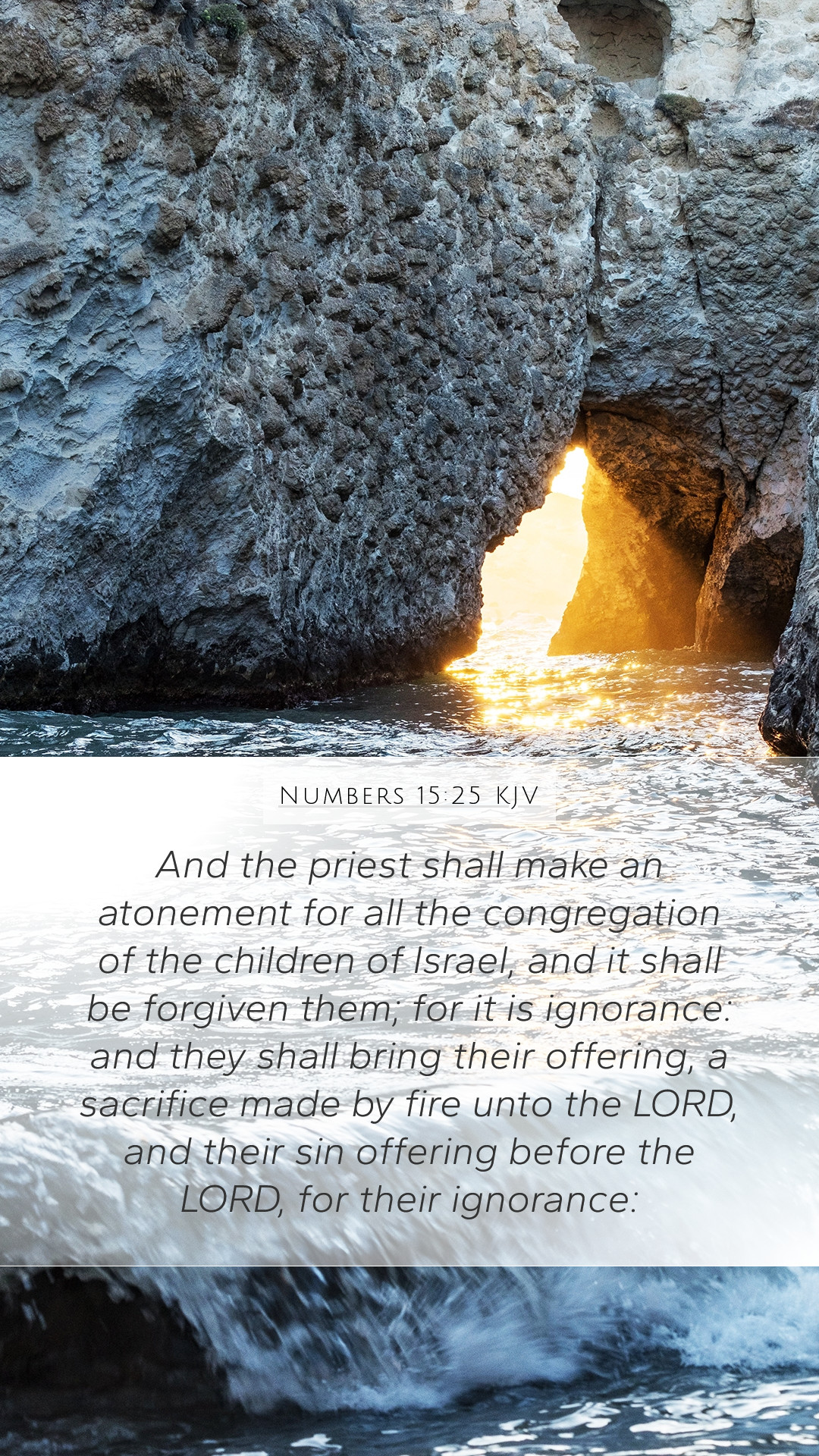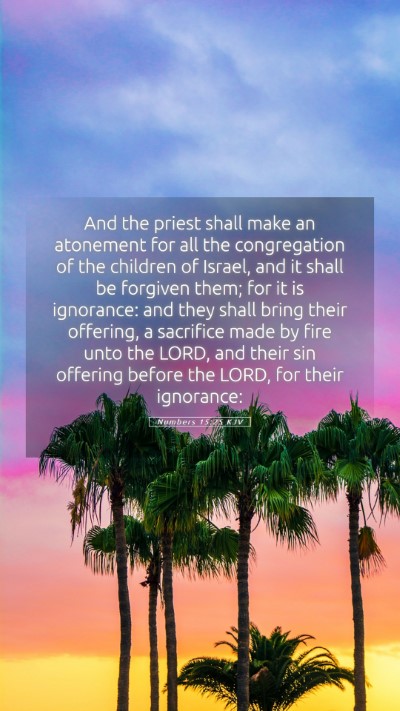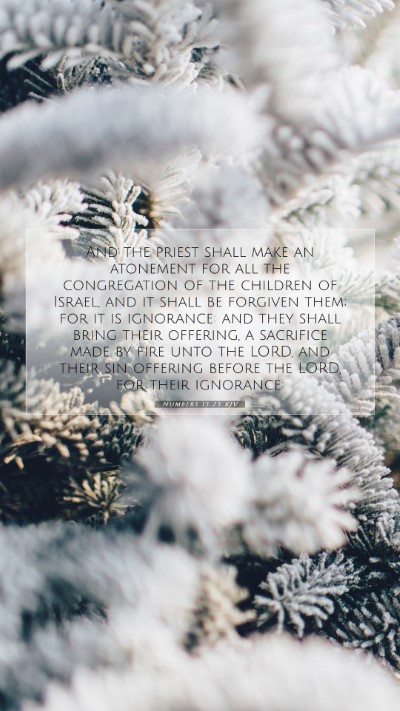Understanding Numbers 15:25
Verse Reference: Numbers 15:25.
Verse Text: “And the priest shall make an atonement for all the congregation of the children of Israel, and it shall be forgiven them; for it is ignorance: and they shall bring their offering, a sacrifice made by fire unto the LORD, and their offering of the LORD shall be for a sweet savour unto the LORD.”
Overview
The verse emphasizes the importance of atonement in the life of the Israelite community. It highlights themes of forgiveness, ignorance of sin, and the necessary offerings to God. This passage points toward the principles of grace, sacrifice, and communal responsibility within the covenant relationship established by God.
Historical Context
In the context of the Book of Numbers, this passage is situated within a section dealing with laws and guidelines for the Israelites as they wander in the desert. It reflects God's intent for His people to remain in right relationship with Him, even when they fail to acknowledge their sins consciously.
Bible Verse Meanings and Interpretations
-
Matthew Henry's Commentary:
Henry notes that this verse illustrates God's mercy for those who sin out of ignorance. It underscores the necessity of sacrificial offerings, signifying the seriousness of sin while also affirming the grace of God in making provision for atonement even when one is unaware of their transgression.
-
Albert Barnes' Commentary:
Barnes highlights the communal aspect of sin and atonement. He indicates that the congregation, when acting in ignorance, collectively bears the weight of sin but can find forgiveness through prescribed offerings. This reflects the importance of corporate accountability in worship and obedience to God.
-
Adam Clarke's Commentary:
Clarke emphasizes the significance of the priestly role in mediating between God and the people. He points out that the offerings made were not just rituals; they symbolized a genuine repentance and acknowledgment of God's holiness, which was essential for receiving God’s forgiveness.
Spiritual Insights
This verse reminds believers today of the need for atonement and the provision God has made through Jesus Christ for all sins—both known and unknown. It addresses the human tendency to overlook one's faults and teaches the significance of bringing one's faults before God in prayer and supplication.
Application to Daily Life
Believers are encouraged to reflect on their own lives, acknowledging areas of ignorance or unintentional sin. As one makes sacrifices—be they time, resources, or acts of love—they actively engage in atonement, recognizing the cost of fellowship with God.
Bible Cross References
- Leviticus 4:13-14: Addressing sin committed in ignorance.
- 1 John 1:9: God's faithfulness in forgiving our sins.
- Hebrews 9:22: Emphasis on the necessity of blood for atonement.
Conclusion
Numbers 15:25 serves as a critical reminder of God's mercy and the need for believers to turn to Him for forgiveness. Understanding this verse through various commentaries enriches one’s study and appreciation of Scripture, reinforcing the principles of atonement and divine grace in the Christian faith.


